Operation "White Sword". Beat at the heart of the revolution
The failure of the first attack on Petrograd
In the spring and summer of 1919, the White Guards, with the support of the Estonian army, made the first attempt to take Petrograd (May offensive of the Northern Corps, How white broke through to Petrograd) In the second half of May, the White Guard Northern Corps and Estonian troops, breaking through the defenses of the Red Army (Petrograd defended the troops of the Western Front as part of the 7 and 15 armies), captured Gdov, Yamburg and Pskov. At the end of May, the whites reached Luga, Ropsha and Gatchina, 11 — 12 of June — to the forts “Krasnaya Gorka” and “Gray Horse”, where an anti-Soviet rebellion broke out.
The red front staggered. The Petrograd direction was considered calm, there were not the best parts. Many soldiers sided with the enemy, surrendered, or fled. The command was unsatisfactory. However, the Soviet government reacted immediately and most decisively restored the defense capability of Petrograd. On May 22, the Central Committee of the RCP (B.) Addressed the workers with an appeal "To the Defense of Petrograd", adopted a resolution on the mobilization of communists and workers of the north-western provinces to the Petrograd sector of the front, which was recognized as the most important. A commission led by Stalin and the deputy chairman of the Cheka Peters arrived from Moscow to Petrograd to investigate and take emergency measures. Petrograd carried out a “purge”, the White Guard, anti-Soviet underground, ready for an uprising, was suppressed. Mobilization was hastily carried out in the city, new units were formed, reserves from Central Russia and parts from other fronts were being tightened. The proximity of such a large city to the front, with a powerful industrial potential, large population, the main base of the Baltic Fleet, became an important prerequisite for the victory of the Red Army in the Petrograd direction.
As a result, White’s offensive stifled. The troops of the Northern Corps of Rodzianko, even with the support of the Estonians, who relied on the white rear, were too small and weak to storm such a huge city, the former capital of the Russian Empire. Help from Finland did not wait. The Finns, who planned to build "Great Finland" at the expense of Russian lands (Karelia, the Kola Peninsula), began the invasion back in April (How "Great Finland" planned to seize Petrograd) In the second half of April, the Finnish "Olonets Volunteer Army" captured Olonets and went to Lodeynoy Pole. In early May, the Finnish army was driven back from Lodeynoye Pole, and on 6 in May, Soviet troops liberated Olonets. The joint performance of the Northern Corps and Finland on Petrograd did not take place.
Rodzianko’s army quickly ran out of steam. Not enough weapons and ammunition. Supply from Estonia has been discontinued. Then the whites lost the support of the Estonian troops. White captured a large territory, Pskov. However, war has already swept through these lands twice. Robbed, ravaged lands could not provide either fighters or food. White and could not get a rear base on Russian soil.
In addition, there was no unity in the white movement itself. Its leaders were in conflict. The "Ataman of the peasant and partisan detachments" Bulak-Balakhovich sought to lead the white army in the Baltic states, clashed with Rodzianko and Yudenich (he accepted the army on 2 on October). Having captured Pskov, Bulak-Balakhovich established his order in the city. Pskov was completely plundered, and the population was terrorized. Also, the "father" was convicted of printing fake money ("kerenok"). Rodzianko tried to calm the raging "dad". He wanted to transfer his detachment to the new 2 corps of General Arsenyev and reorganize it into a regular unit with its organization and discipline. However, the “Old Man” did not want to obey such an order and suggested reforming his detachment into the “Peasant Army”.
The sabotage and altercation between the commander of the North-Western Army, General Rodzianko and Bulak-Balakhovich lasted more than a month. The leaders of the British military mission, Generals Marsh and Gough, and the Estonian Commander-in-Chief Laidoner took part in this conflict. The proximity of Bulak-Balakhovich to the Estonian British military leadership irritated Yudenich and Rodzianko. They saw the intrigues of the "father" against the command of the North-West Army, but could not suppress his rebellion without the approval of the Allies. As a result, the new commander of the Northwest Army, General Yudenich, with the full support of the army commanders, ordered the arrest of the "father". A detachment of Colonel Permikin was sent to Pskov. “Bulak-Balakhovich fled under the protection of the Estonians. The withdrawal from the front of a part of the white forces and the Estonians supporting them allowed the 15 Red Army quite easily to occupy Pskov. In September, Bulak-Balakhovich tried to arrest the command of the North-West Army in order to lead it, but his conspiracy was exposed. Subsequently, the "father" with his detachment was in the service of the Estonians.
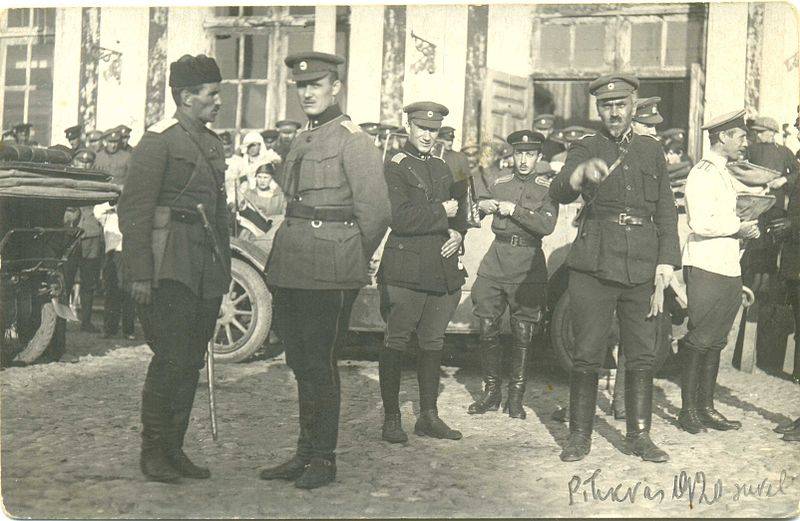
On 21 on June, the troops of the 7 Red Army, with the support of the Baltic Fleet, broke through the defenses of the Northern Army (deployed from the Northern Corps on 19 on June, and the North-West Army on 1 on July) and on August 5 liberated Yamburg. In late June - early July, the troops of the 7 Army, in cooperation with the Onega military flotilla, during the Vidlitsky operation drove the Finnish troops to the border. The troops of the 15 Army 26, which went on the offensive in mid-August, liberated Pskov on August.
Thus, with the liberation of Yamburg and Pskov, the Red Army summed up the first White Guard attack on Petrograd. The defeated white parts were fixed on a narrow bridgehead between Lake Peipsi and the Plyussa River. Yudenich’s army was squeezed on a narrow patch of land with the “capital” in Gdov. On the right flank, the Reds threatened from Pskov, Lake Peipsi and Estonia beyond the river. Narva were in the rear, the sea on the left flank. The army headquarters in Narva, the “government” in Reval - is already on foreign territory. There was a temporary lull in the Petrograd direction.
It is worth noting that the Civil War in the north-west of Soviet Russia is interesting for the interweaving of interests of Germany (at the first stage of the formation of the Baltic Limitrophs and white forces), the Entente - primarily England, which tried to occupy a dominant position in the Baltic Region, the nationalistic aspirations of the Baltic Limitrophs and Finland . The white formations in these conditions in the northwest turned out to be very weak and very much depended on the support of external sponsors of the Civil War in Russia. So, the Northern Corps (then the army) was very dependent on the position of Estonia and the British.
Creation of the Northwest Government
In early August 1919, the Estonian government raised the issue of recognition of independence by the white movement, threatening otherwise to stop supporting Rodzianko’s army. On August 10, Deputy Chief of the British Military Mission in the Baltic, General Marsh (March), summoned members of the Political Conference under Yudenich to Revel (One of the best generals of the First World War N. N. Yudenich, H. 2, H. 3, H. 4), a group of industrialists from the Committee on Russian Affairs in Finland and public figures. Here he delivered an ultimatum to them: immediately, without leaving the room, to form a "government of the North-Western region of Russia." Otherwise, the British will stop helping the white movement and the White Guards will not receive anything from the already brought goods (weapons, uniforms, etc.). This government was to immediately recognize the independence of Estonia, conclude an alliance agreement with it. The British also prepared a list of members of the government and the Tex Treaty, recognizing the full independence of Estonia.
Bearing in mind the extremely difficult situation of the army and not seeing any other way out, the members of the meeting accepted the British ultimatum. Yudenich, who was at the front, was unable to arrive at the meeting on time due to frustrated communications. But he demanded from Marsh that a decision should not be made without him. But the decision was made. On August 11, a government led by Lianozov was created. Yudenich was appointed Minister of War and Commander-in-Chief. At the same time, the British changed the statement again in a day. If on August 10 General Marsh invited the Russian and Estonian representatives to sign a document with mutual equal and direct obligations (the formed Russian government was obliged to recognize the full independence of Estonia, and the Estonian government was to provide the armed forces with armed support “in the liberation of Petrograd”), then the document from August 11 It was already a unilateral obligation of the Russians to recognize the independence of Estonia and a request to the Estonian government to assist in the attack on Petrograd.
The Northwest government is located in Reval. In September, the Lianozov government recognized the independence of Latvia and Finland. The issue of own currency began. The offensive on Petrograd by the forces of the Northwest Army did not promise a quick victory. Therefore, in its foreign policy activities, the northwestern government made every effort to attract Estonia and Finland to attack the Petrograd. However, negotiations dragged on and the question of direct and open action by Estonia and Finland against the Bolsheviks remained open. Estonia and Finland put forward the requirement for the immediate and unconditional recognition of their state independence not only by the northwestern government, but also by Admiral Kolchak and the League of Nations as the main condition for providing armed assistance to the Yudenich army. And the "supreme ruler" Kolchak categorically refused to recognize the independence of Estonia. The government forcefully created by the British did not go into military affairs, limiting itself to the role of an advisory and administrative body under the commander in chief Yudenich.
At the same time, the British did not render effective assistance to the White Guards. Due to their intrigues, the receipt by the troops of the necessary weapons and uniforms was still delayed. While negotiating, while unloading, while delivering ... The Red Army did not wait and defeated the enemy. Small, poorly armed and without ammunition, the droopy spirit of the Northwest Army retreated beyond the Luga River, blowing up bridges behind it. The recognition of independence did not improve relations with Estonians. On the contrary, seeing the weakness of whites, seeing how the British were wiping their feet on them, they gained strength and became insolent. Estonian troops looked at the White Guards with hostility, as at possible opponents of their independence, the Estonian authorities, as they could, put sticks in the wheels. Home-grown Estonian politicians and national intelligentsia, drugged by "freedom", dreamed of creating their own "power." An information campaign was conducted against the "Great Russian" governments of Kolchak, Denikin and the Northwest Army, a bubble of threats from the white officers who promised to move to Revel after the capture of Petrograd was inflated.
True, the high command, led by General Laidoner, understood that the Estonian troops are too weak to withstand the Reds, and if they go to the Estonian border, they will quickly establish Soviet power there. It was obvious that it was better to fight the enemy on foreign territory and with the wrong hands. Let the Russians weaken the Russians. Therefore, Laidoner willingly went to a military-technical agreement with Yudenich. Threw up a little help with weapons and money. Estonian regiments advanced into Russian territory and guarded the rear, minor sectors of the front, which made it possible for White to concentrate all his forces and assets in the main areas. However, anti-Russian propaganda was doing its job, Estonian troops were more and more hostile to the Whites.
From the allied command, Yudenich’s army did not wait for effective assistance. When the trick of Hoff and Marsh with the creation of the northwestern government received publicity, an international scandal erupted. It turned out that the British military mission has the authority only to be under Yudenich, and not arbitrarily rebuild the life of the Baltic states. A diplomatic conflict arose between France and England. The French themselves broke firewood in southern Russia, but here they tried to act as defenders of Russian interests. Mainly due to a possible future threat from Germany. Paris has in the east an ally against the Germans. As a result, the Supreme Council transferred the general leadership of the allied forces in the western region from England to France. Hoff and Marsh were recalled. France sent General Nissel to the Baltic. But while negotiations were ongoing, time was lost. By October, Nissel had not yet reached Revel. During the decisive battles, Yudenich’s army was left without the support of the Entente.
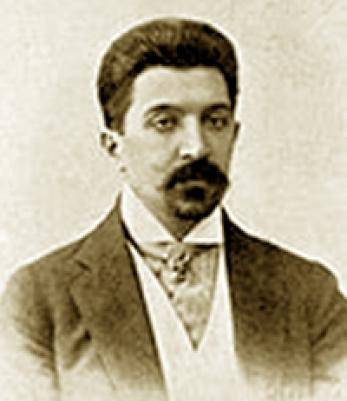
The idea of a new offensive on Petrograd
The Soviet government tried to regulate relations with the Baltic countries. Finland was recognized by the Council of People's Commissars as early as December 1917. In response to the note of the People's Commissar for Foreign Affairs Chicherin from 31 on August 1919 to Estonia, on September 14 on September September, the foreign ministers of Finland, Latvia, Lithuania and Estonia gathered to resolve the issue of peace negotiations. 29 September 1919 was opened in Yuryev conciliation conference of the Baltic states. On October 4, the governments of Estonia, Latvia, and Lithuania informed Moscow of their agreement to begin preliminary talks on October 25 in Yuriev. At the same time, Estonia hindered the start of negotiations with Soviet Russia. The Estonian government wanted to support itself in two scenarios: the victory of the whites and their capture of Petrograd, and the victory of the Red Army. These negotiations provided diplomatic cover for the offensive of Yudenich’s army on Petrograd. Weakened vigilance of the Soviet command in the Petrograd direction.
Estonian Foreign Minister Noski said in an interview with the Minister of Commerce, Industry and Supply of the Northwestern Government Margulies:
The ongoing diplomatic negotiations between Estonia and the Bolsheviks forced the White Guards to rush into an attack on Petrograd in order to once and for all discourage the Baltic Limitrophs from negotiating independence with the Soviet government. In addition, the attention of whites in the north-west of Russia was riveted to the fighting on the Southern Front, where Denikin broke through to Moscow. In September - early October 1919, the attack of Denikin’s army on Moscow developed successfully, it even seemed that the red Southern Front was falling apart and a little more and the White Guards would take the capital. It seemed that the moment for the strike on Petrograd was the most favorable. The offensive of Yudenich’s army will contribute to the victory of the All-Union Socialist League in Moscow and the overall victory of the white movement in Russia.
The British also pushed for an attack on Petrograd. The British military mission assured Yudenich that, with the advance of the Northwest Army, the English fleet would provide support on the coastal flank and undertake an operation against Kronstadt and the Baltic Red Fleet. It was wise to launch the offensive before the start of winter, while the British fleet could provide support. Then the waters of the Gulf of Finland will be chained with ice. White also had to prove to the Entente its usefulness in order to be supported.
In September 1919, the Northwest Army revived. Finally, the whites received weapons, ammunition, ammunition, food, which were supposed to arrive in the summer. The Entente stepped up supplies. True, there was a lot of outright rubbish. The war in Europe ended and the Westerners got rid of scrap metal. So, from the party sent tanks only one turned out to be serviceable, the rest required major repairs. Airplanes were unsuitable, because the motors sent to them were not the same brand. English guns were not of high quality, were without locks. But on the whole, the army was armed, equipped, equipped with ammunition. Parts began to receive food rations and cash allowance. Discipline has recovered, morale has recovered.
There was no unity in the white leadership in the northwest about the future offensive. Part of the government believed that it was premature. The army is too small, so it is necessary to gain time, form new units, prepare and arm them, and only then strike at Petrograd. However, the opinion of the military leadership led by Yudenich won. The generals believed that it was necessary to attack immediately, while Denikin was advancing in the south, there was a supply from England and Estonia did not make peace with Soviet Russia.
State of the Northwest Army
At the time of the second offensive, the North-Western Army consisted of 26 infantry regiments, 2 cavalry regiments, 2 individual battalions and an amphibious naval detachment, totaling about 18,5 thousand people. The army was armed with about 500 machine guns, 57 guns, 4 armored trains (Admiral Kolchak, Admiral Essen, Talabchanin and Pskovite), 6 tanks, 6 airplanes and 2 armored cars.
The composition was motley. The soldiers were from peasants mobilized in the frontline who did not want to fight, former prisoners of war of the old army, who were in the camps of Austria-Hungary and Germany and deserters from the Red Army. The most combat-ready was Lieven's detachment (of a monarchist orientation), he was perfectly equipped with the German authorities, and with his dressing and discipline resembled parts of the old army. Among the officers were supporters of orientation to Germany. A mass of the useless element was concentrated in the rear: cowards who were afraid of the front line, greedy parasites from the civilian and military, generals and former officials, gendarmes, adventurers, longing for profit at all costs (robbery of Petrograd or a crumbling, crumbling army).
Army troops were divided into 2 corps: 1th under the command of Count Palen (2th, 3th and 5th Liven divisions), 2th - General Arsenyev (4th division and a separate brigade). There were also separate units - the 1-I separate division Dzerozhinsky (3,2 thousand people), 1-th and 2-th reserve regiments, tank battalion and amphibious assault squad.
The White Guards planned to seize Petrograd by a sudden and powerful blow to the shortest direction Yamburg - Gatchina. Auxiliary and distracting attacks were carried out in the Luga and Pskov directions.
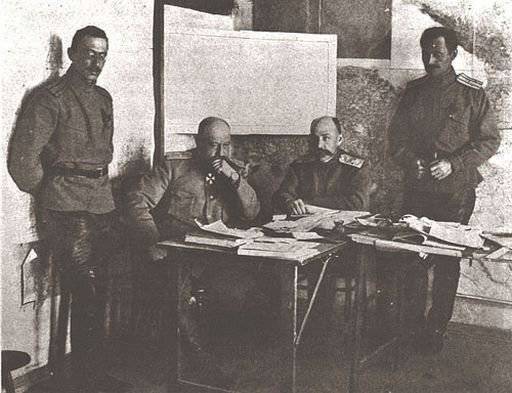
To be continued ...
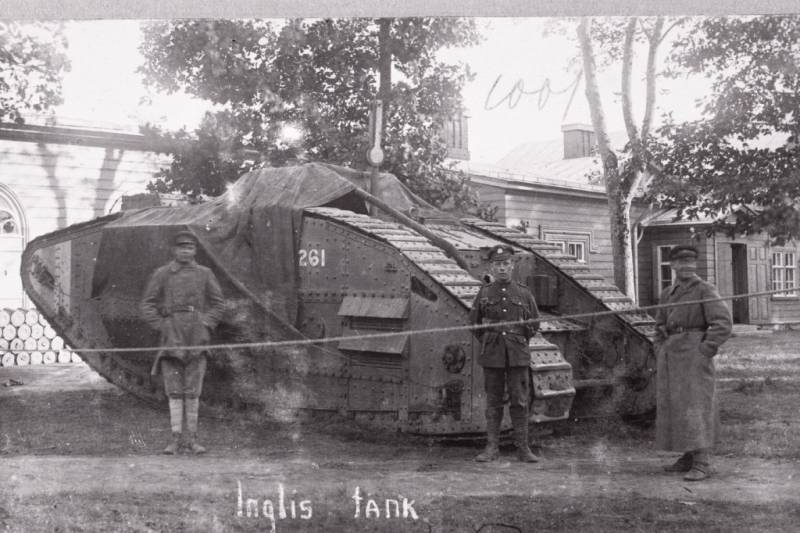
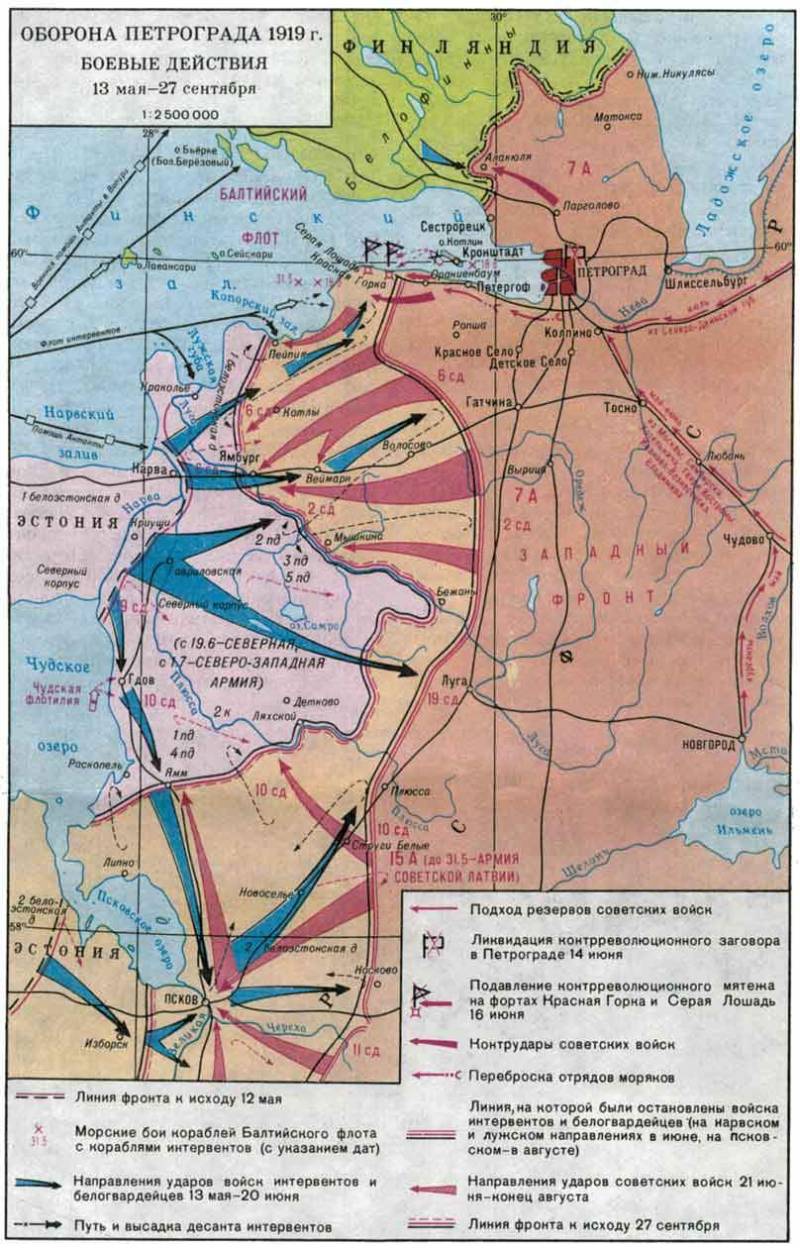
Information